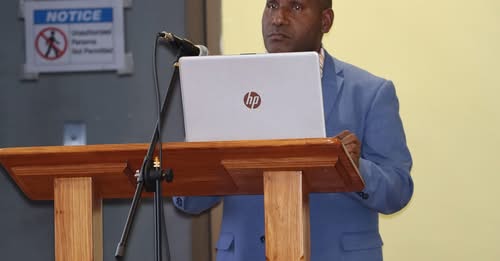The PNG Rice Grain Board is now calling on the national government to urgently support commercial rice seed production in the country, and National Agriculture Research Institute (NARI) has come onboard to support this call.
Chairman of Rice Grain Board Mr. Koren Maso made this call when meeting with NARI Director General Dr Nelson Simbiken at the NARI Head Office on May 13, 2025, to formalize arrangements for a Memorandum of Understanding in commercial rice seed production with two external rice seed producers in the country.
A funding of K11milion has been earmarked in 2023 by the National Government for rice seed production and model farm and K4 million from that funding will be specifically for seed development.
Director General of NARI, Dr Nelson Simbiken, added that this is an urgent call to the Government to release the funds earmarked for the rice commercialization program.
“For the Government to enter commercialization, we need to increase the volume of seeds, thus NARI has developed four lowland and two highland rice varieties, but the volume is not enough for commercialization,” said Dr Simbiken.
The joint call by the Rice & Grain Board and NARI to venture into commercial rice seed production is aimed at reducing the high cost of importing rice at almost K1billion every year.
The Rice and Grain Board were set up by the government in 2023 to reduce import of rice and grain, encourage rice production to address food security, create employment opportunities and income.
RGB Chairman Mr Maso urged relevant agencies within the sector to mobilize unused state land to realize commercial rice seed production in the country.
“In a packet, the finished product for rice can cost you K5 to K6. But per kilo for seeds is K37.00.”
“Knowing and understanding that the return of investment is higher in the seed then the production, we have interests from two companies, one in China and the other in Philippines.”
Mr Maso further stated that the triparted agreement will see NARI do commercial seed research while the investors will focus on operation and production.
“The aim is to be able to feed our PNG farms and the surplus we can export.”
NARI and the Rice and Grain Board will make an official announcement once the MOU is signed.

